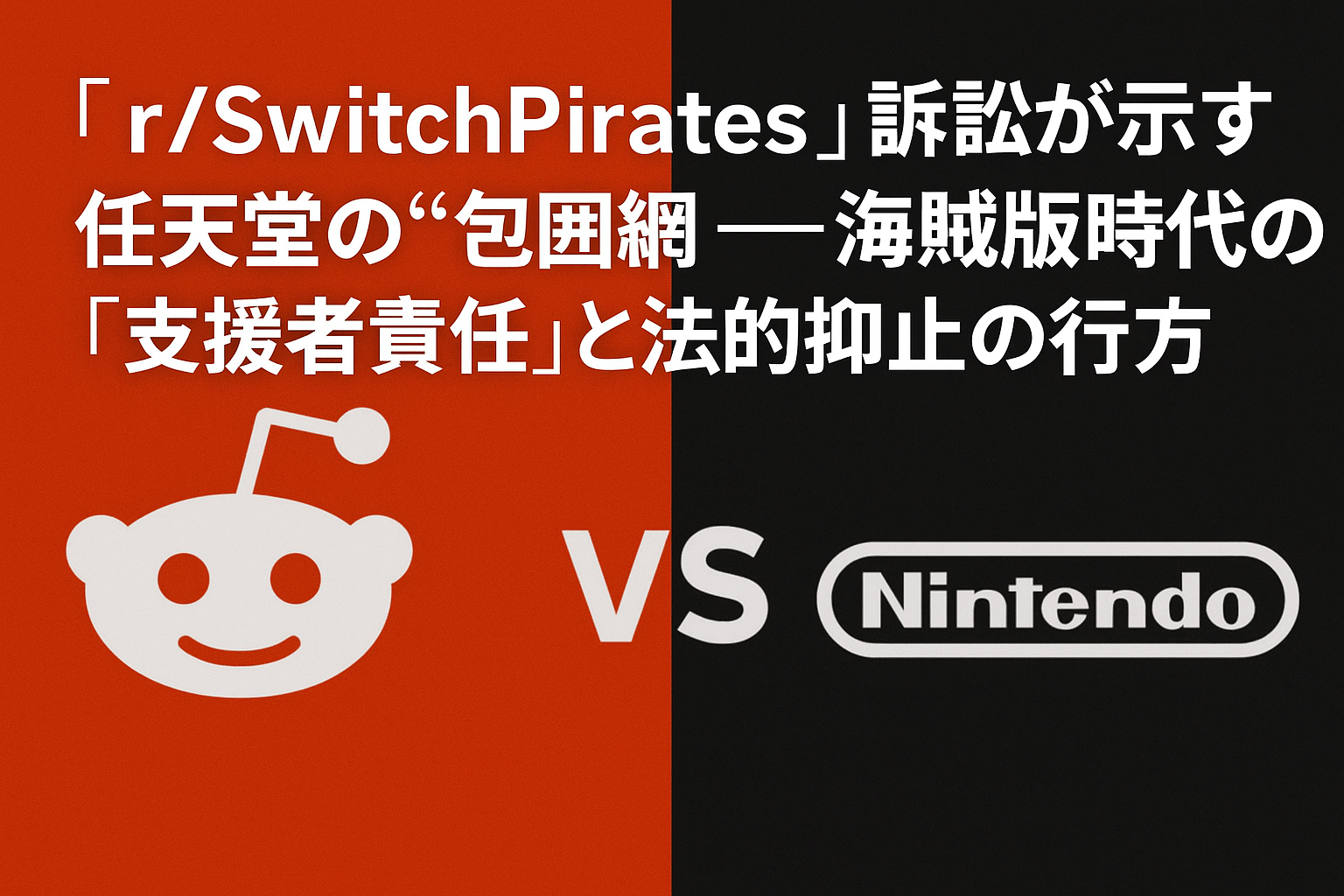The “Silent Tension” Behind a Default Judgment
In October 2025, it was revealed that Nintendo of America had filed a motion for default judgment against James Williams (known online as Archbox), who was allegedly involved in the piracy community “r/SwitchPirates.”
The defendant failed to respond after service of process, and Nintendo is now seeking damages totaling $4.5 million (approximately ¥670 million).
At first glance, this may seem like a lawsuit against a lone individual. However, it also represents an attempt to redefine the boundaries of legal responsibility for those who support piracy.
Reddit’s “r/SwitchPirates” and the Risks of “Indirect Involvement”
According to the complaint, the defendant was not merely sharing illegal software, but was also engaged in:
- Promoting piracy websites
- Providing instructions on how to circumvent technical protection measures
- Participating in the operation of distribution sites
In other words, even without directly distributing copyrighted material, acts that support the ecosystem of piracy are now being treated as “involvement in infringement.”
This shift reflects a deeper legal and cultural challenge—one that touches on how information sharing functions in the age of SNS, Discord, and Reddit communities.
The $4.5 Million Damages Claim as a Legal Message
Nintendo calculated the damages based on 30 titles × $150,000 each, the statutory maximum under U.S. copyright law.
When precise damages are difficult to quantify, statutory damages are often used, and in this case, the figure clearly carries a symbolic deterrent message.
Nintendo has historically taken strong legal action against hardware modders and ROM site operators, but this time the focus extends to community-level administrators.
This signals the beginning of an era in which “peripheral supporters” are no longer safe from liability.
The Strategic Meaning of a Default Judgment
A motion for default judgment increases the likelihood that the plaintiff’s claims will be accepted if the defendant fails to respond.
In this case, the defendant’s silence allows Nintendo to move swiftly toward securing an injunction and a high monetary award.
Such default judgments are often pursued not primarily for financial recovery, but rather for their deterrent effect as a public warning.
Nintendo’s message to Reddit communities and other piracy networks is unmistakable: “You could be next.”
The Evolution of Nintendo’s “Rights Enforcement Strategy”
In recent years, Nintendo’s litigation focus has expanded—from ROM distribution sites to mod chip vendors, technical advisors, and now community moderators.
Behind this trend lies the company’s desire to extend the lifespan of the Switch and to combat the rise of hardware modification and reuse culture.
With AI-driven game imitation and the rapid evolution of emulators, copyright infringement has become more decentralized.
Nintendo’s lawsuits now target not only illegal copying but also the infrastructure and actors that sustain it.
The Coming Debate over “Freedom of Expression” and the Limits of “Support”
As legal deterrence grows stronger, conflicts inevitably arise with freedom of expression—especially regarding technical knowledge sharing and modding culture.
If even discussions on security research or reverse engineering become chilled, legitimate research and innovation could suffer.
Thus, the key question moving forward is how to design a sustainable balance between the protection of rights holders and the freedom of user communities—a challenge for the next generation of digital law.
Nintendo vs. “Archbox” Is More Than Just One Case
This lawsuit is not merely about punishing a single Reddit moderator.
It is a test case for defining the boundaries of responsibility within online communities.
Regardless of the final ruling, this case underscores a growing issue in digital copyright law:
How should we treat those who “spread” infringing information rather than create it?
The answer will shape the future of online accountability and the scope of legal deterrence in the age of networked creativity.

